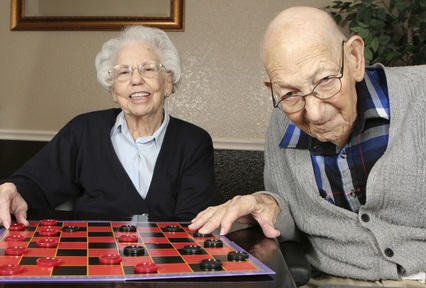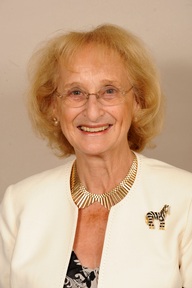House of Lords warns of crisis saying UK is 'woefully unprepared' for ageing
Our rapidly ageing population is set to have a huge impact on our society and public services and the Government is “woefully unprepared”, warns a report by the House of Lords.

In its report Ready for Ageing, The House of Lords Committee on Public Service and Demographic Change has called for the Government and all political parties to take action now to avoid a future crisis.
Lord Filkin, chairman of the Committee, said: “The Government must set out in a White Paper the implications of an ageing society with a vision for living well and independently. It should set out how our health and social care services, our pension arrangements and our practices must change to achieve this. All political parties should be expected to consider the wider implications of the ageing society in their manifestos for the 2015 election.”
He added: “As a country we are not ready for the rapid ageing of our population. By 2030, England will have double the number of people aged 85 and over than it had in 2010, and the large increase in our older population will have profound effects.
“Health and social care need to be radically reformed; both are failing older people now. A big shift in services is essential so that the many more older people with long-term conditions can be well cared for and supported in their own homes and in the community and not needlessly end up in hospital. All health services and social care must be integrated to help achieve this.
“This is not a distant issue; our population is older now and will get more so over the next decade. The public are entitled to an honest conversation about the implications.”
The report reveals England will see a 50 per cent rise in the number of those aged 65 and over and a 100 per cent increase in those aged 85 and over between 2010 and 2030.
An ageing society will greatly increase the number of people with long-term health conditions, and health and social care services will need a radically different model of care to support such people in their own homes and in the community, according to the report.
Baroness Greengross, chief executive of International Longevity Centre-UK, echoed the Lords’ call for action and said “society is in denial of the inevitability of ageing”.

She added: “The Public Service and Demographic Change Committee argues that there has been a lack of vision and coherence in the ageing strategies of successive governments. This cannot continue.
“It is fiscally vital that we get ageing right. Age-related spending in the UK is projected to rise from an annual cost of 21.3 per cent to 26.3 per cent of GDP between 2016/17 and 2061/62, equivalent to a rise of around £79bn in today’s money.
“But addressing the cost of ageing is just the start of the challenge.
“The report paints a picture of a health and care system which doesn’t work for today’s older population. Similarly our communities, housing and transport systems are ill equipped for the challenges ahead.”
Andrew Chidgey, director of external affairs for Alzheimer’s Society would like to see more investment in community services.
He said: “The UK is facing a colossal dementia challenge with 800,000 people living with the condition today and the number expected to rise to a million by 2021. Yet many people are struggling to pay high prices for care that often doesn't meet their needs. People are also going into hospital unnecessarily costing the NHS hundreds of millions of pounds. This situation is only going to get worse unless action is taken.
“In order to meet this challenge, we need investment in community services now to ensure people with dementia are enabled to live a fulfilled life and supported to live at home for as long as possible.” For many people there is a risk that a longer life could worsen the existing problem of insufficient savings and pensions. To help address this, people should be able to work later, if they wish to, often in part-time work, said the report.
Baroness Greengross is in support of this. She said: “We must not be afraid to tell people that they are likely to need to work longer and that state pension ages may need to increase further as healthy life expectancy changes.
“As individuals we will all need to take more responsibility for preventing ill health. Older people will, as the Committee highlights, need to use the value of their homes to partly fund their retirement. She would like to see “this important and wide ranging report” kick starting a new debate about age, and said the “Government must not shy away from difficult decisions”.
Jane Ashcroft, chief executive of care home provider, Anchor, believes a dedicated Minister for Older People would help to give a joined up approach to dealing with demographic change.
 “Over a year ago, a petition was handed to Number 10 by Anchor with 137,000 signatures calling for a Minister for Older People to be appointed in Government. We still lack one person in Cabinet who is responsible for looking at older people’s needs across the board, taking a holistic approach to preparing for issues that are faced by older people today, as well as future generations.
“Over a year ago, a petition was handed to Number 10 by Anchor with 137,000 signatures calling for a Minister for Older People to be appointed in Government. We still lack one person in Cabinet who is responsible for looking at older people’s needs across the board, taking a holistic approach to preparing for issues that are faced by older people today, as well as future generations.
“The Government desperately needs to move quickly on this issue,” said Ms Ashcroft.
The House of Lords Committee on Public Service and Demographic Change concludes that whichever party is in Government after the election should, within six months, establish two cross-party commissions to respond to the ageing society.
One would work with employers and financial services providers to improve pensions, savings and equity release; the other would analyse how the health and social care system and its funding should change to serve the needs of our ageing population. Both should report in 12 months.
Latest News Analysis
 04-Sep-19
Extra £1.5 billion announced for social care in Chancellor's Spending Review
04-Sep-19
Extra £1.5 billion announced for social care in Chancellor's Spending Review
 02-Jul-19
Department of Health forced to rethink care homes' nursing rates after legal challenge
02-Jul-19
Department of Health forced to rethink care homes' nursing rates after legal challenge
 18-Jun-19
Overnight care workers forced to sleep in offices and told 'bring your own bedding'
18-Jun-19
Overnight care workers forced to sleep in offices and told 'bring your own bedding'
 14-Jun-19
Back in the closet: Third of care home staff have had no LGBT+ awareness training
14-Jun-19
Back in the closet: Third of care home staff have had no LGBT+ awareness training
 11-Jun-19
PM candidates on social care: Rory Stewart calls fixing care an 'unfinished revolution'
11-Jun-19
PM candidates on social care: Rory Stewart calls fixing care an 'unfinished revolution'